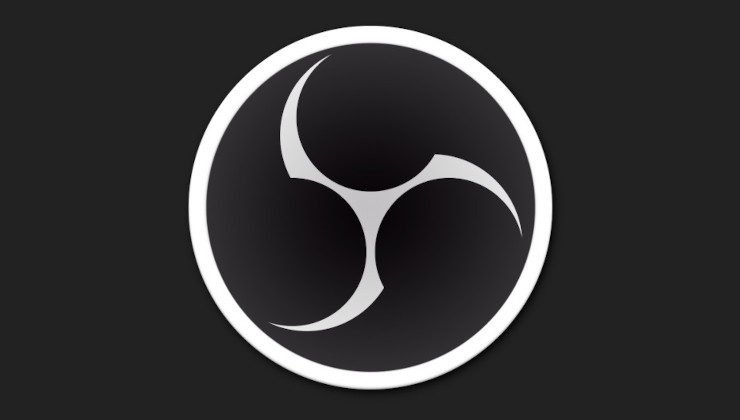Just like what happened with Darwin Project only recently, it seems Paladins is no longer playable on Linux with Steam Play.

Late last month, I wrote an article and made a video showing off just how well Paladins was working on Linux thanks to Steam Play. Here we are again, only a couple weeks later and it's now a complete dud, with it almost instantly kicking me (and confirmed by others) out of games. You might get in for a few seconds, but with 100% reproduction it will kick you pretty quickly back to the main menu.
Back when previously writing about such an issue, I did make it clear with a note about how "with multiplayer titles and Steam Play there's nothing stopping the developer adjusting their anti-cheat which could end up locking-out Linux gamers".
It's a real shame, as both myself and my Son enjoyed playing Paladins and apart from a few issues which were also present on Windows, it worked beautifully with some really great performance.
While Steam Play has opened the door to a lot of titles not officially available on Linux, it's not quite the answer to everything as some like to repeatedly claim. This is obviously going to be a repeating problem with multiplayer games, so for now, I would honestly just keep away from any game using Easy Anti-Cheat with Steam Play. I will repeat what I said when I spoke about Darwin Project, I think Valve should really note on store pages what anti-cheat systems are used to help gamers make informed decisions.
What will be interesting, is that Valve said they will be rolling out "Steam Trust" in their post about some changes coming to Steam. Perhaps if more developers use Valve's own tools when they're available, this might not be such an issue since you would expect Valve's own tools to work with Steam Play.
I've reached out to Easy Anti-Cheat, again, to see if they would like a constructive chat about it. They didn't reply last time, so hopefully they will this time.
As Code Artisan wrote above EAC can't make the Windows version of EAC work on Wine. It's kernel level code that will never run with Wine. It's up to developers to just run the games natively on Linux, EAC *does* support that (since at least two years ago, think it was even longer now).
Of course, because EAC is just a root kit. That's what we call such software in the Linux environment.
It's always been this way and will be, otherwise EAC will be useless (yes, it's considered useless by some people already, but it's at least doing a better job than VAC
Valve filters Dota2 and CSGO Matches (offline) with an AI (trained beforehand). This is OS-agnostic and comprehensible.
The EAC guys might do a great job. But they do it in a very non-transparent way, that leaves room for much speculation. Plus they install a root kit on your PC.
Valve filters Dota2 and CSGO Matches (offline) with an AI (trained beforehand). This is OS-agnostic and comprehensible.A) That's not VAC.
B) That requires an accordingly big server infrastructure hosted by the dev/publisher that only the really big parties can afford to run. Even more so when you want to allow people to host their own servers.
C) Even that will never catch everyone. Anti-cheat is always a battle between the "good" and the "bad" guys.
Last edited by Alloc on 11 Feb 2019 at 2:12 pm UTC
A) That's not VAC.
But closely related.
B) That requires an accordingly big server infrastructure hosted by the dev/publisher that only the really big parties can afford to run. Even more so when you want to allow people to host their own servers.Well, you do need some hardware, but it's not rocket science:
https://www.pcgamer.com/vacnet-csgo/
C) Even that will never catch everyone. Anti-cheat is always a battle between the "good" and the "bad" guys.
But with the AI solution, however, the guy with the largest amount of data wins. And how do you want to recognize external cheats that work with image recognition and that don't change anything at all on the PC?
As in fighting cheating? Yes. But that's about it. As stated it's nothing every game can use.A) That's not VAC.But closely related.
Never said it was rocket science, but cost:B) That requires an accordingly big server infrastructure hosted by the dev/publisher that only the really big parties can afford to run. Even more so when you want to allow people to host their own servers.Well, you do need some hardware, but it's not rocket science:
https://www.pcgamer.com/vacnet-csgo/
Valve had to have spent at least a few million dollars on that hardware: 64 server blades with 54 CPU cores each and 128GB of RAM per blade.Yeah, nothing every regular dev could do ;)
That's only really important for fighting "perfect clicks". As I said especially in long-running games where it's more about building etc you can't cheat without actually interacting with the data. So either on your PC, the host, or in between. Though the in between part can mostly be fought on a network level. The host is typically assumed to be safe (or don't care ... don't play on a server that's set up for cheating if you don't want to), so the remaining part is the client. And that's exactly where solutions like VAC, EAC, BattlEye try to beat the bad guys.C) Even that will never catch everyone. Anti-cheat is always a battle between the "good" and the "bad" guys.But with the AI solution, however, the guy with the largest amount of data wins. And how do you want to recognize external cheats that work with image recognition and that don't change anything at all on the PC?
So much misinformation in one thread :(While I'm sure your theory as to why this is so is very solid, I could have sworn there were people in this very thread saying it used to in fact do so, for them even. So unless EAC changed from not being kernel-level code to being kernel-level code (in which case whoever decided to make that change was also in effect deciding to make it not work in Wine and so people's complaints are not invalidated by your point), there's some sort of contradiction between the theory and some people's lived experience.
As Code Artisan wrote above EAC can't make the Windows version of EAC work on Wine. It's kernel level code that will never run with Wine.
https://support.steampowered.com/kb_article.php?ref=5966-WKLC-4172
One of Valve's plan for 2019
Steam Trust: The technology behind Trusted Matchmaking on CS:GO is getting an upgrade and will become a full Steam feature that will be available to all games. This means you'll have more information that you can use to help determine how likely a player is a cheater or not.
So if it's effective in stopping cheaters and devs use it, problem solved?
Last edited by Linuxwarper on 11 Feb 2019 at 11:42 pm UTC
We talked about Valve adressing anti cheat. Could the Trust match making be the answer?
https://support.steampowered.com/kb_article.php?ref=5966-WKLC-4172
One of Valve's plan for 2019
Steam Trust: The technology behind Trusted Matchmaking on CS:GO is getting an upgrade and will become a full Steam feature that will be available to all games. This means you'll have more information that you can use to help determine how likely a player is a cheater or not.
So if it's effective in stopping cheaters and devs use it, problem solved?
Well, until it is allowed to run outside Steam (which all Valve stuff related to Steam aren't IIRC), I don't think so. This locks game hard to one store, so I don't think devs/publishers will use it, unless they firmly decided they want to release only on Steam, so closing their options not only for release, but for the future as well.
Couldn't they use it on Steam and something else on other stores?We talked about Valve adressing anti cheat. Could the Trust match making be the answer?
https://support.steampowered.com/kb_article.php?ref=5966-WKLC-4172
One of Valve's plan for 2019
Steam Trust: The technology behind Trusted Matchmaking on CS:GO is getting an upgrade and will become a full Steam feature that will be available to all games. This means you'll have more information that you can use to help determine how likely a player is a cheater or not.
So if it's effective in stopping cheaters and devs use it, problem solved?
Well, until it is allowed to run outside Steam (which all Valve stuff related to Steam aren't IIRC), I don't think so. This locks game hard to one store, so I don't think devs/publishers will use it, unless they firmly decided they want to release only on Steam, so closing their options not only for release, but for the future as well.
No, never mind, I guess if it's a matchmaking thing that wouldn't work.
Last edited by Purple Library Guy on 13 Feb 2019 at 7:52 am UTC
Well, until it is allowed to run outside Steam (which all Valve stuff related to Steam aren't IIRC), I don't think so. This locks game hard to one store, so I don't think devs/publishers will use it, unless they firmly decided they want to release only on Steam, so closing their options not only for release, but for the future as well.I have faith that Valve will do the right thing. If Trust matchmaking improvements makes it effective against cheaters, then surely it would get better adoptation if it can be used even without Steam. I could be entirely wrong too, but Valve's track record so far has been good in my eyes. They aren't perfect but they sure as hell ain't Epic.
Robin Williams (rip) comes out of book and asks "Has Fortnite been released for Linux?!"
Trust feature aside, I read on LG reddit that Valve is apparently working with EAC?
[Valve working with EAC (supposedly)](https://www.reddit.com/r/linux_gaming/comments/apuwxe/so_i_asked_easy_anticheats_support_in_regards_to/)
One thing to keep in mind. If Trust tackles cheating much better than EAC, VAC and Battleeye, then it could persuade devs. Assuming Trust (after improved) will be low resource compared to anticheat solutions. I sure would embrace it, at very least for Steam, if it worked well.
Last edited by Linuxwarper on 13 Feb 2019 at 11:47 pm UTC
Couldn't they use it on Steam and something else on other stores?We talked about Valve adressing anti cheat. Could the Trust match making be the answer?
https://support.steampowered.com/kb_article.php?ref=5966-WKLC-4172
One of Valve's plan for 2019
Steam Trust: The technology behind Trusted Matchmaking on CS:GO is getting an upgrade and will become a full Steam feature that will be available to all games. This means you'll have more information that you can use to help determine how likely a player is a cheater or not.
So if it's effective in stopping cheaters and devs use it, problem solved?
Well, until it is allowed to run outside Steam (which all Valve stuff related to Steam aren't IIRC), I don't think so. This locks game hard to one store, so I don't think devs/publishers will use it, unless they firmly decided they want to release only on Steam, so closing their options not only for release, but for the future as well.
No, never mind, I guess if it's a matchmaking thing that wouldn't work.
If they could use something which runs everywhere (and the Trust wouldn't be a matchmaker), what motivation for using Valve's solution they have? It is much easier and cheaper to just use one solution which runs everywhere.
Of course as Linuxwarper wrote, there is (I think slim) possibility that Trust won't be tied to Steam. Then things could get interesting.






 How to set, change and reset your SteamOS / Steam Deck desktop sudo password
How to set, change and reset your SteamOS / Steam Deck desktop sudo password How to set up Decky Loader on Steam Deck / SteamOS for easy plugins
How to set up Decky Loader on Steam Deck / SteamOS for easy plugins
See more from me